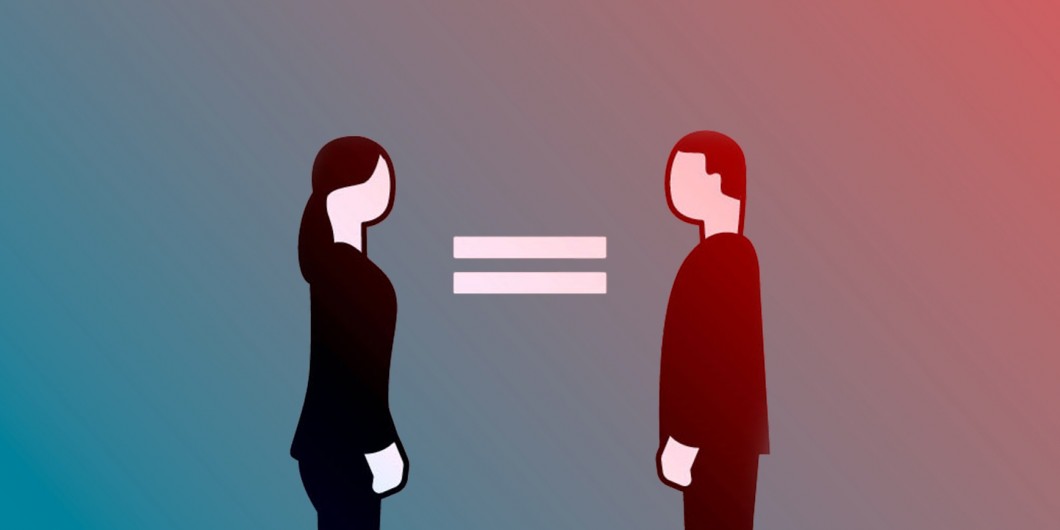Feminism and gender issues have now come to the forefront in the media. Questions concerning a woman’s place in the workplace and politics, the wage gap and sexual identity are making the front page, fuelling debates and stimulating social movements. What was once taboo is now open for public debate.
For example, Caitlyn Jenner capitalized on the issue of Vanity Fair that revealed her new gender identity to create a Twitter account–and she became the fastest person ever to reach one million followers. Guinness clocked her world record at 4 hours and 3 minutes. Such a phenomenon demonstrates that gender issues are powering a major social movement.
This past January, millions of people gathered in Washington and in more than 600 cities worldwide—including Montreal and Toronto—to protest the sexist views of the new American President. Donald Trump’s beliefs were on display well before the election, but what merits a protest for some is perfectly acceptable to others.
To better understand the opinions held by average citizens, the latest Prosumer Report, The Future is FeMale, delves into the roles of women (and men) in society and in the workplace, as well as gender identity, childrearing, etc. The study surveyed over 12,000 people in 32 countries, including 1,000 Canadians (500 of which were from Quebec).
Here are some of the highlights:
“Feminism” is the new “F” word
Over a third of men and half of women surveyed think that the world would be a better place with more women in positions of power. The vast majority of respondents believe in equal pay for equal work. However, in Canada, only 42.8% of women and 32.3% of men consider themselves to be feminists. The word still carries negative connotations! Even though celebrities near and far have proclaimed their solidarity, like Beyoncé, Emma Watson and Justin Trudeau, many continue to reject the label, afraid of being associated with a certain militantism that has left many scarred. For example, Lise Thériault, despite being the Quebec Minister responsible for the Status of Women, and German Chancellor Angela Merkel, one of the most powerful women on the planet. Is feminism misunderstood or overused as a term? And is it, somehow, damaging the cause?
What does gender equality truly mean?
Over a third of Canadians believe that there will never be equality between men and women because the sexes are not equal… or at the very least, not the same. The majority of respondents do believe that men and women are equally likely to be smart, hardworking, responsible, funny, intellectual, creative, honest and trustworthy. They also think that men and women have equal value in society. Three out of four Canadians believe men and women are equally likely to be a good boss.
Pink and/or blue
Although Canadians are increasingly more open to gender fluidity, many parents are still ambivalent about gender-neutral childrearing. Should boys be raised as “boys” and girls as “girls”? The gap in opinions is wide. While 90% of Russians and 100% of Indonesians believe in raising children according to traditional gender roles, two-thirds of Canadians prefer a gender-neutral approach. In Quebec, that statistic rises to 75.1%. Not surprising then that the first transgender toy was launched in Quebec!
Girly boys and boyish girls
It will also come as no surprise that a country’s childrearing practices reflect its attitudes towards masculinity and femininity. In Indonesia, for example, 97% of respondents worry about boys becoming less masculine and 95% worry that girls are becoming less feminine. This is in sharp contrast to Canada, where only 25% of respondents fear the same thing.
It is also interesting to note that it is more socially acceptable for girls to play with trucks and for women to climb the corporate ladder than it is for boys to play with dolls and for men to be stay-at-home parents. From this angle, women have more freedom from sexist stereotypes than men. Yet, 57.8% of respondents believe that men should be masculine and 48.8% still believe that women should be feminine.
Despite ongoing social media bashing, Havas’ Prosumer Report paints a much less bleak picture. Overall, both men and women support women’s rights and gender equality. And even if many societies still cling to traditional gender roles, gender fluidity continues to gain acceptance. Brands and the communications industry has a role to play in stimulate conversation and in influencing what gets normalized.
The declaration that the future will be female is sensationalism, perhaps. However, one thing is certain: women will play a greater role in the future than they did in the past… and that’s a trend happening across the board.



